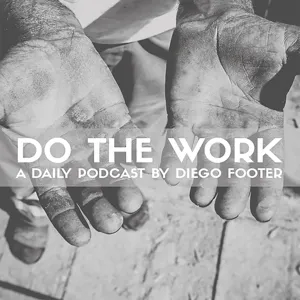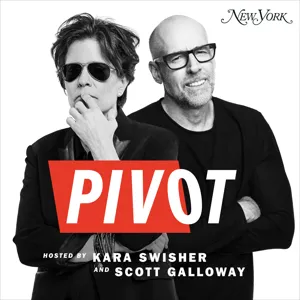Podcast Summary
Appreciating the Preciousness of Time: Embrace the reality of our limited lifespan to prioritize what truly matters and live fully in each moment.
Time is a precious and limited resource, and we should treat every moment with reverence as if it were our last. Oliver Burkeman, in his book "4000 Weeks," emphasizes that our lifespan is relatively short, averaging around 4000 weeks. This realization can help us reevaluate how we manage our daily tasks and prioritize our time. The pursuit of efficiency can sometimes lead to being overly busy with less important tasks, such as endless email exchanges. Instead, Burkman suggests accepting that time cannot be mastered and focusing on what truly matters. We should strive to live fully in each moment, recognizing that every experience is a last time in its own way. This perspective can help us live more mindfully and appreciate the present moment.
Medieval peasants didn't manage time like we do today: People in the past didn't view time as a commodity, instead they lived in harmony with nature and completed tasks as needed
Our modern obsession with time as a finite resource and the pressure to efficiently manage it is a relatively recent development. According to Burkman, early medieval peasants did not view time in the same way, as they were more connected to the natural rhythms of their environment. They did not have the same sense of time as a commodity to be saved, wasted, or mastered. Instead, they lived in harmony with nature, completing tasks as needed without the pressure to maximize productivity or efficiency. This perspective challenges our contemporary relationship with time, which can often feel like a constant battle against the clock. It's essential to remember that this way of thinking is not universal and that other cultures and historical periods have had different approaches to time. By acknowledging the historical context of our time-centric mindset, we may gain a new appreciation for the importance of balance and flexibility in our relationship with time.
Understanding our finiteness reduces stress and anxiety: Embracing our mortality helps prioritize, reduce perfectionism, and live intentionally for personal growth
Embracing our finite nature and understanding that our time is limited can help reduce stress and anxiety, and allow us to build a more meaningful life. Finitude, or the awareness of our own mortality, is a universal experience that can help us prioritize what is truly important and let go of the need for perfectionism and constant productivity. By asking ourselves if a particular path or decision enlarges us or diminishes us, we can make choices that align with our values and lead to personal growth. While it can be uncomfortable to accept the limitations of time, doing so can help us live more intentional and fulfilling lives.
Embracing Sacrifices and Managing Negative Feelings: To navigate life's challenges, recognize the difference between negative feelings from growth and toxic ones. Use techniques like focusing on one project, strategic underachievement, and maintaining a 'done list' to manage sacrifices and find meaning in difficult moments.
Life involves trade-offs and sacrifices, and it's essential to distinguish between negative feelings that come with growth and those that are toxic. While it's crucial to avoid situations that cause prolonged misery, it's also important to recognize that meaningful experiences often don't feel great in the moment. To manage these sacrifices, consider techniques like focusing on one big project at a time, strategic underachievement, and maintaining a "done list." Strategic underachievement involves deciding in advance what areas of your life you'll "fail" at for a set period, allowing you to avoid constant self-criticism. A done list, on the other hand, focuses on celebrating accomplishments instead of dwelling on incomplete tasks. By embracing these concepts, we can better navigate the challenges of life and find meaning in the moments that don't feel particularly pleasurable.
Appreciating accomplishments and focusing attention: Maintain a done list to acknowledge completed tasks, reduce productivity debt, and appreciate progress. Focus attention on present moments to live intentionally and productively.
Focusing on our accomplishments through maintaining a done list and being mindful of where we direct our attention are crucial for leading a fulfilling and productive life. A done list serves as a reminder of the tasks we have completed, helping us appreciate our progress and reducing feelings of productivity debt. Attention is not just a resource, but the very essence of our lives. Every moment we spend focusing on something adds to the sum total of our existence. Distraction, therefore, is a serious issue as it robs us of our precious time. Worry and excessive planning ahead can also be detrimental if they prevent us from fully engaging in the present. By maintaining a balance between acknowledging our accomplishments, focusing our attention on what truly matters, and planning ahead in a healthy way, we can live more intentional and fulfilling lives.
Plans as present moment intentions: View plans as flexible intentions instead of rigid frames, question comfort zones and unrealistic expectations, and accept the uncertainty of life.
While planning is beneficial, an overreliance on it can lead to stress and anxiety. It's important to view plans as present moment intentions rather than rigid frames that must be adhered to. Additionally, questioning certain aspects of our lives, such as where we pursue comfort over discomfort or hold ourselves to impossible standards, can lead to greater self-awareness and flexibility. Ultimately, trying to hold our plans more loosely and accepting that we're all "winging it" can help us move through life more freely. The speaker also recommended asking five questions to help with this mindset, including where we pursue comfort over discomfort, unrealistic standards, identity pressures, holding back, and what we would do differently if we didn't care about the outcome.
Viewing actions as links in a long chain of human endeavor: Focus on the intrinsic value of work and our role in it, find meaning in present moment and relationships, contribute to larger human project.
We should view our actions, whether in our personal lives or in our work, activism, or other domains, as valuable links in a long chain of human endeavor. Instead of judging the worth of a task based on its immediate or long-term impact on the world, we should focus on the intrinsic value of the work itself and our role in it. This perspective can help us find meaning and purpose in our actions, regardless of the ultimate outcome. As the speaker in the podcast suggests, there have been people who have come before us and will come after us, and we are just one link in the chain. By focusing on the present moment and what we can do, we can contribute to the larger human project and find fulfillment in the process. This perspective can be particularly helpful in times of uncertainty or when faced with challenges or setbacks. Instead of getting discouraged by the seemingly insurmountable problems in the world, we can focus on the small steps we can take and the impact we can have, no matter how small. Furthermore, this perspective can also help us appreciate the value of the present moment and the people around us. Instead of constantly striving for some future goal or outcome, we can find joy and meaning in the present moment and the relationships we have with others. In summary, by viewing our actions as valuable links in a long chain of human endeavor, we can find meaning and purpose in our lives, appreciate the present moment, and contribute to the larger human project.






